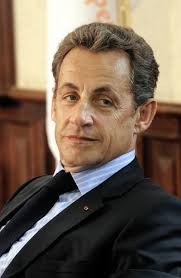
Introduction
The presidency of Nicolas Sarkozy, who served as the 23rd President of France from 2007 to 2012, remains a substantial chapter in the nation’s political landscape. His leadership was marked by bold reforms, economic challenges, and a distinctive foreign policy approach that sought to reshape France’s role on the global stage. Understanding his tenure is crucial as it laid the groundwork for discussions about the current political climate in France.
Major Policies and Reforms
Sarkozy’s time in office was defined by a series of ambitious reforms. Upon assuming office, he prioritized economic growth amid a burgeoning global financial crisis. His ‘President at the Service of France’ program included tax cuts, labor reforms, and initiatives to boost innovation and competitiveness. Notably, Sarkozy introduced the “work more to earn more” policy, aiming to increase workers’ incentives by reducing taxes on overtime work.
Socially, Sarkozy focused on integrating minorities and reducing crime rates. His controversial policies aimed at enforcing stricter immigration laws and promoting national identity stirred significant debate and opposition in France, revealing the complexities of a multicultural society grappling with issues of integration and national unity.
Foreign Policy and International Relations
Nicolas Sarkozy’s foreign policy strategies positioned France as a proactive player in global diplomacy. A key aspect of his presidency was the active engagement in international conflicts, notable during the 2011 intervention in Libya, which sought to protect civilians during the civil unrest. Sarkozy’s leadership within NATO was also notable, as he reinstated France into the military command structure, fostering a renewed commitment to collective defense.
His tenure was also characterized by a strong advocacy for climate change action, as seen during the pivotal 2009 climate summit in Copenhagen. Despite the eventual outcomes of these initiatives being met with mixed reactions, Sarkozy’s emphasis on global cooperation underscored France’s ambition to lead on pressing international issues.
Conclusion
Nicolas Sarkozy’s presidency left an indelible mark on France and the world stage. While his economic policies elicited varied responses, his fervent approach to both domestic reforms and international matters remains a point of discussion among political analysts today. As France navigates through contemporary challenges, reflections on Sarkozy’s presidency provide valuable insights into the complexities of political leadership. His legacy, a blend of bold initiatives and contentious debates, continues to influence political discourse in France as preparations for the upcoming presidential elections loom.



